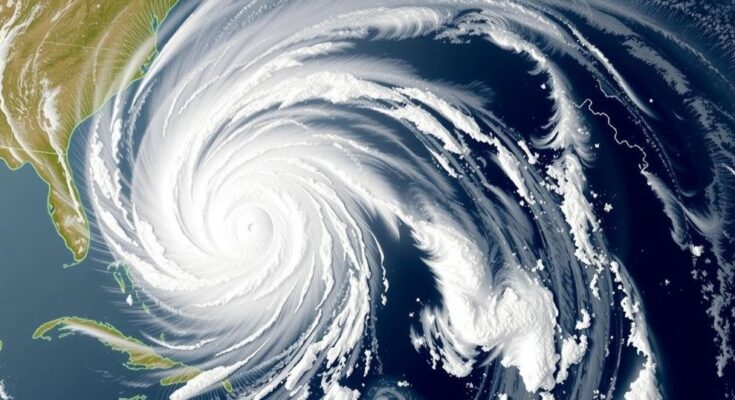Cyclone Chido has devastated Mayotte, leading to multiple fatalities and significant infrastructure damage. The storm, with wind speeds exceeding 220 kph, is heading towards mainland Africa, where Mozambique may be particularly affected. Authorities are mobilizing resources to assist impacted communities, amid rising concerns over potential flooding and public health crises linked to the aftermath of the cyclone.
Cyclone Chido has caused significant devastation in the French territory of Mayotte in the Indian Ocean, leading to several fatalities, as officials reported on Saturday. The cyclone, boasting winds exceeding 220 kph (136 mph), has wreaked havoc across the islands, where many structures have been severely damaged or destroyed. French Interior Minister Bruno Retailleau stated that the number of casualties remains uncertain due to ongoing rescue efforts, highlighting the extensive destruction faced by the island’s residents.
Prime Minister François Bayrou noted that essential facilities, including the prefecture, hospital, and airport, have been adversely affected. French President Emmanuel Macron is monitoring the situation closely, acknowledging the cyclone’s unprecedented intensity since 1934. The local prefect, François-Xavier Bieuville, emphasized that many residents have lost everything, and extensive police and gendarmerie deployment has been made to assist the stricken population and deter potential looting.
Mayotte is currently under a red alert, and residents have been advised to seek shelter. Reports indicate complete power outages affecting thousands. Additionally, the cyclone has also impacted the nearby islands of Comoros, raising concerns for a group of fishermen who have gone missing. Following its trajectory, the storm is expected to reach mainland Mozambique, potentially affecting millions.
Local authorities in Malawi and Zimbabwe are preemptively preparing for possible flooding and evacuations as Cyclone Chido advances. As the cyclone season is underway in this region, previous storms have highlighted the severe humanitarian crises exacerbated by climate change, placing additional strain on these developing nations.
Cyclone Chido is part of the cyclone season that typically occurs from December to March in the southeastern Indian Ocean. This period historically witnesses the occurrence of intense storms that lead to significant humanitarian crises in southern Africa. Previous cyclones, such as Idai in 2019 and Freddy in the past year, have resulted in thousands of casualties and prolonged suffering due to subsequent public health issues including outbreaks of cholera, dengue fever, and malaria. Research indicates that climate change may be intensifying these weather events, disproportionately affecting impoverished nations that contribute little to climate change yet bear the brunt of its impacts.
In summary, Cyclone Chido has caused catastrophic damage in Mayotte and surrounding regions, resulting in numerous fatalities and widespread destruction. As authorities mobilize for rescue efforts and prepare for the cyclone’s landfall on the African mainland, the potential for a severe humanitarian crisis remains high, highlighting the vulnerability of these regions to the increasing frequency and intensity of cyclones exacerbated by climate change.
Original Source: www.cnn.com




